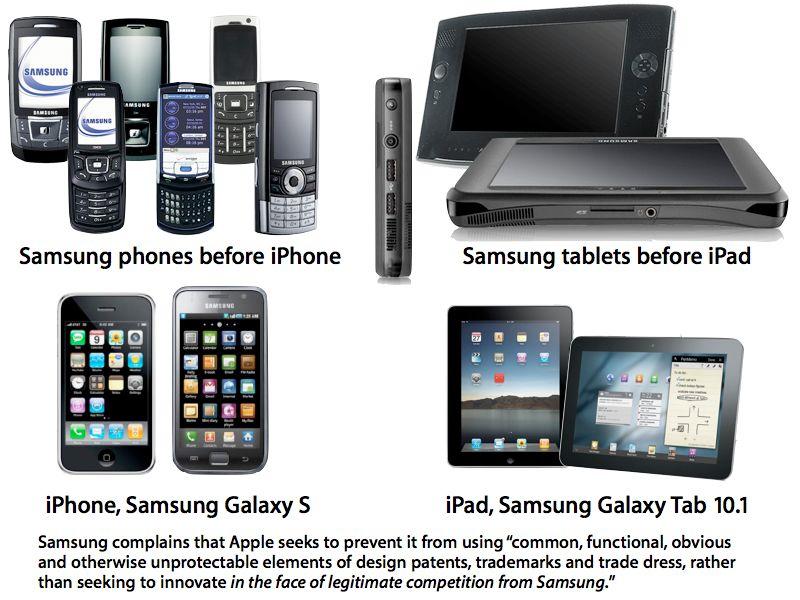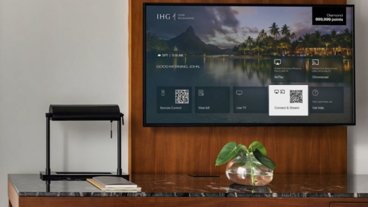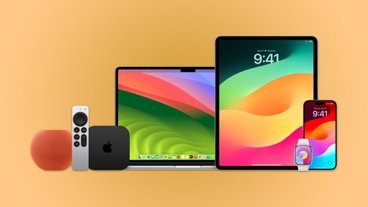Samsung to hedge its Android Galaxy Tab with new Windows 8 offerings
According to a report by the Wall Street Journal, people familiar with the South Korean company's plans say it is interested in expanding its growing tablet portfolio “in line with similar strategies of technology diversification it has pursued in cellphones, television sets and other electronic goods.†The initiative was initially reported by Korea Economic Daily.
The report cited Chang Sea-jin, a business professor at National University of Singapore, as saying that “Samsung at least has to have a double bet rather than relying 100 percent on Android. That will give them a bargaining position with Google and expose them to a broader group of customers.â€
Android fails to pick up the Tab
Samsung introduced a 7 inch Galaxy Tab running Android 2.2 Froyo last fall, even as Google asked its licensees to wait for Android 3.0 Honeycomb. In October, Steve Jobs had predicted that mini-tablets like the Galaxy Tab wouldn't offer enough differentiation between highly portable handheld smartphones and full sized tablets like his own iPad, which are large enough to present a full tablet experience rather than just being a large screen phone. Critics of the iPad had even mocked it as being "just a big iPod touch" until it began selling into the millions.
Samsung's Galaxy Tab has not sold into the millions however, with competitor Lenovo claiming that Samsung had only actually sold 20,000 devices of the million tablets it pushed into the channel in an effort to "buy share" in the tablet market. Samsung's own representatives have refused to say how many of its tablets have actually been bought by end users, stating only that sell through had been "quite smooth." Parallel reports have noted inordinately high return rates for the Galaxy Tab as well.
Jobs had also predicted last fall that competitors would return with larger tablets once their "tweener" versions failed to sell. Samsung subsequently introduced its Galaxy Tab 10.1 and Galaxy Tab 8.9 just prior to the iPad 2 launch, but then returned the products to the drawing board for several months in order to address specifications the company's own executives described as "inadequate" relative to Apple's new iPad.
Stung by Honeycomb
Samsung lost a "first to market" advantage in Android tablets this year to the Motorola Xoom after Google worked in a close partnership with Motorola to deliver its plans for a true, tablet optimized version of Android dubbed 3.0 Honeycomb.
However, both the Xoom and Honeycomb were rushed to market with a variety of unfinished features, and were met with poor reviews. Even as Samsung released its own revised Honeycomb tablets later this summer, missing features and rough edges of the Honeycomb release, including a web browser described by Sencha as "not ready for primetime, even for HTML4," dogged its reviews and sales.
Google's internal policy of partnering with companies like Motorola to develop new Android reference releases in secret, something Google has also done with HTC and Samsung itself, has taken on new meaning for outside licensees like Samsung now that Google has initiated plans to take over Motorola Mobility and run it as its own hardware subsidiary.
Sued in several countries
Additionally, Samsung's own tablet hardware designs, aimed at attracting iPad buyers with similarities from the hardware design down to the box they ship in, have also been met by technical and design patent lawsuits by Apple, accusing Samsung of "slavish copying" of its intellectual property in 19 cases filed in 9 different countries.
Apple has obtained initial legal victories in some of these cases. Last month a court in Germany issued a preliminary injunction against Samsung preventing sales of the Galaxy Tab 10.1, a ruling later expanded to include the Galaxy Tab 7.7. A new ruling in the German case is expected on Friday “on whether to leave in place an order barring sales of Samsung’s Android-based tablets, pending trial next year.â€
A similar case in Australia is also preventing Samsung from offering the Galaxy Tab 10.1 there, while a Dutch court has halted sales of three Samsung Android smartphones (Galaxy S II, the Galaxy S and the Galaxy Ace) pending a hearing of allegations by Apple that the models copied its iPhone. The ruling is critical for Samsung as the Netherlands is the main product distribution hub in Europe for the company.
A Japanese court heard preliminary arguments on Wednesday in an Apple countersuit against Samsung. Apple has also filed suit in US district court, recently winning an appeal for an expedited trial.
Toe in the tablet market
While Apple's iPad sales have already eclipsed the company's own Mac sales, Samsung's tablet business accounts for very little of its overall business. The company reportedly shipped only two million tablets into the channel during the first half of the year, compared with 13.9 million iPads shipped during the same period. Samsung’s telecommunications division provides a quarter of Samsung’s sales and earnings, but mobile phones and particularly smartphones account for the majority of those sales, with the company reporting shipments of 140 million units in the first half of the year.
At the beginning of 2010, Microsoft introduced a tablet based on Windows 7 branded Slate PC, a product that fizzled immediately after Apple introduced its iPad. HP went on to make a few thousand Slate PCs before pulling the plug and embarking on a new hardware plan based on Palm's webOS, which it had acquired. It then abandoned its tablet hardware entirely after a management shakeup decided to focus on enterprise software instead.
After a decade of failing to find a market for its Tablet PCs, the most notable being Samsung's Q1 "ultra mobile PC" (pictured above as its "before iPad" tablet), Microsoft is interested in making a “big swing at tablets,†as Reuters reported yesterday. Windows chief Steven Sinofsky will show off a Windows 8 tablet in Anaheim next Tuesday. The first Windows 8 tablets are expected to ship in about 12 months.
Samsung has also oscillated between platforms in its smartphone business as it tried to take on Apple's iPhone, first introducing its Omnia smartphone running Windows Mobile in 2008, then showing the Omni HD running Symbian the next year, then introducing its Galaxy line of Android-based smartphones last year. Of those models, only Samsung's Galaxy smartphones have proven to be real hits, as they represent the closest approximation to the iPhone within the Android ecosystem.
 Chris Smith and Daniel Eran Dilger
Chris Smith and Daniel Eran Dilger











 Wesley Hilliard
Wesley Hilliard
 Amber Neely
Amber Neely

 William Gallagher
William Gallagher

 Malcolm Owen
Malcolm Owen








